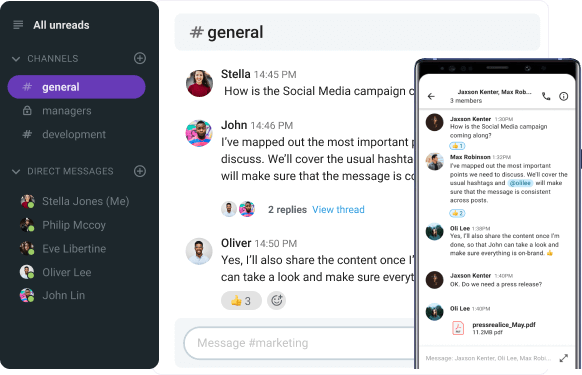Congratulations! You’ve managed to discover the best business communication problem a person could have.
No matter what the reason behind your decision is, you’ve decided that a job offer you’ve already accepted doesn’t quite satisfy your requirements after all.
Now, all you have to do is figure out how to break the news to your would-be employer.
Having been in such a situation before (and recently!), this author is happy to explain how to decline a job offer you already accepted without losing face.
In this article, we’ll go through the:
- Reasons someone might have to decline a job offer they’d already accepted,
- Various steps they might need to take in order to rescind their acceptance, as well as some
- Questions they ought to ask themselves to avoid landing in such a sticky situation again.
However, before we get into all of that, we ought to answer a question most people have when they get into this kind of situation.

Table of Contents
Is it okay to decline a job offer after accepting it?
When faced with the realization that a job you’ve accepted may not be such a great fit for you, you may find yourself wondering whether rejecting a job offer after accepting it is even possible.
Depending on the stage of the selection process you have reached, you may even ask yourself: “Can I decline a job offer after signing the contract?”
Well, allow me to set your mind at ease.
Not only is retracting a job acceptance a completely commonplace practice, but we could even say that it’s good for everyone involved.
Moreover, backing out of a job you’ve already accepted is also entirely legal — even after signing papers.
After all, most of the states across the U.S., with the exception of Montana, have something called “at-will employment.”
In addition to allowing employers to fire their employees at any time without stating the reason, this type of relationship also empowers employees to leave at any time without having to explain their decision.
So on that front, your freedom is guaranteed even if you’ve already signed a contract.
Of course, in that case, the terms of your departure may depend on the notice period specified in the paperwork — so that’s something to keep in mind.
💡 Pumble Pro Tip
Declining a job offer should be your prerogative at any point during the selection process. If you realize a job isn’t right for you even before accepting the position, this blog post will help you put the decision into words:
The benefits of backing out of a job after accepting the position
As we have previously stated, reneging on a job acceptance could ultimately benefit both you and your would-be employer.
On the one hand, the benefits you would experience are pretty clear.
In addition to getting a confidence boost from knowing that you have refused to settle for an unsuitable opportunity, not taking that job would also leave you free to pursue other exciting ventures.
On the other hand, backing out as soon as you realize that you’ve accepted an offer that’s just not right for you would allow the company to hire someone else without having to start the selection process again.
Moreover, your decision to decline a job you don’t want would give someone else the opportunity to work for the company in question.
After all, even if that position wasn’t your dream job, it might be just that to someone else.
The potential downside of turning down a job offer after accepting it
As far as downsides go, there’s only one real concern you might have.
That is: what if you say ‘No’ and then your other plans fall through?
What if you end up having to go back to the employer you previously turned down in such an indecisive manner?
Well, that’s exactly what makes this move so tricky, and why you should be certain that this job really isn’t for you.
Still, if you communicate your rejection well, that door won’t be closed to you forever.
After all, chances are that you didn’t know much about the company or the position you were applying for before your job interview.
You might have accepted the job offer quickly because you felt like you had no other option or because you were excited to even receive an offer in the first place.
Either way, the hiring team will probably understand these factors and note your professionalism in handling such an awkward situation.
In fact, they may even have some experience retracting job offers after making them to unsuitable candidates. So, they may sympathize on that front too.
And, if they decide to be less than dignified upon receiving your notice, you can take comfort in knowing that you’ve made the right choice.
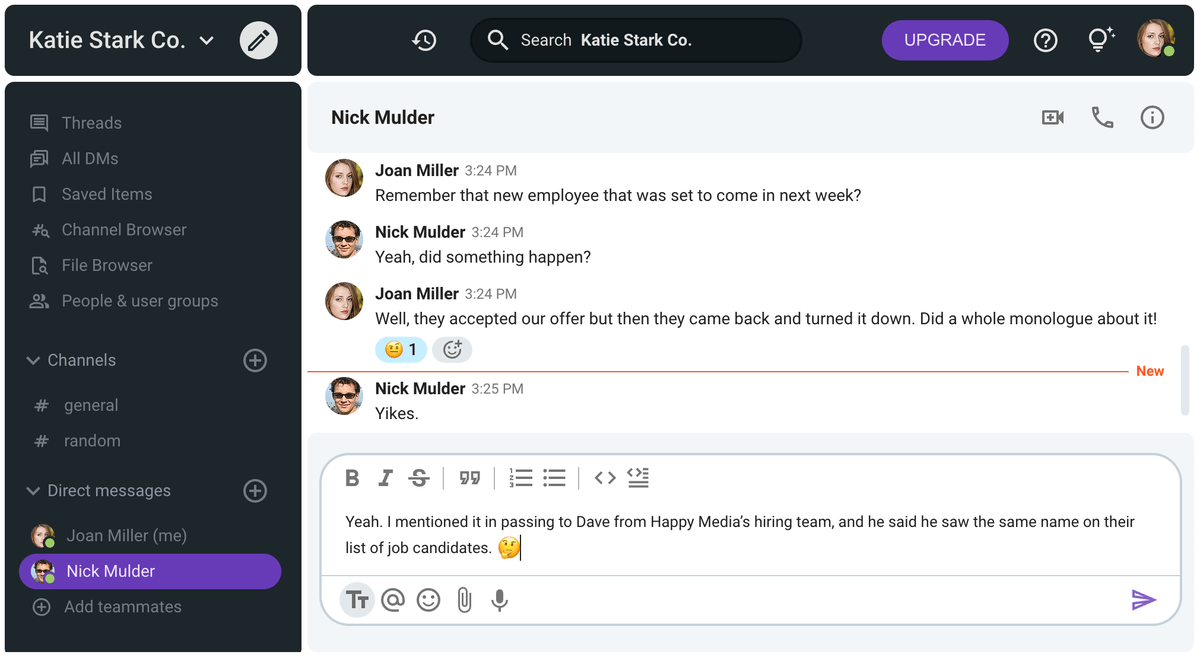
Why would you want to decline a job offer after accepting it?
Ultimately, if you want to know whether you should retract a job acceptance or not, that’s not a question we can answer for you.
However, if you’re curious about what would be some valid reasons to do so, we’ve got a list right here.
Reason #1: Unexpected or unsatisfactory conditions
Arguably the most common reason someone might have to turn down a job even after accepting it has to do with the proposed conditions.
Remember, most people are only learning about the full scope of responsibilities that are tied to a role at the job interview.
If the hiring manager offers you the job mere days after the interview, you may not have had enough time to digest everything you’ve learned about the job.
Faced with such glad tidings, you may accept without even taking the time to consider.
It wouldn’t be until a few days later, or even a week, that you realized that the:
- Position isn’t as good as it seemed when you accepted it.
- Work environment is different than what you prefer.
- Shifts aren’t in line with your natural productivity cycle.
- Specified working hours don’t work for you, and you would much prefer a more flexible schedule.
- Office is a bit too far away for your liking and the employer doesn’t accommodate remote work.
- Job would require you to move further than you’re willing to go.
- Company would threaten your work-life balance.
On their own, you may not consider most of these issues to be complete dealbreakers.
However, if they start piling up, you may consider retracting your job acceptance.
💡 Pumble Pro Tip
All things considered, some of the issues we have highlighted — such as the work environment you would be going into — are things you can improve once you start working. We even have a guide showing you how to do it, here:
Reason #2: Inadequate compensation
Even if you’re satisfied with the conditions your would-be employer is offering, there’s still one factor that might sour the deal.
Let’s say the position is tailor-made for you. You’d be doing work you love and are good at, with great people, at a convenient location — all the stars have aligned.
There’s just one problem. For whatever reason, the company is either unwilling or unable to offer you a competitive salary.
Alternatively, you may have been offered an underwhelming benefits package.
So, what’s a hopeful job candidate to do? Should you reduce your criteria?
Well, some people would do just that, especially if the company promises to increase your pay within a certain amount of time.
But, what if you can’t reasonably expect to see a pay increase any time soon?
More importantly, what if the money you have been offered simply isn’t enough to live on?
In that case, you may find yourself having to decline a job offer after accepting it.
After all, no matter how good a job is, it’s still a job — you can’t be expected to perform with inadequate compensation.
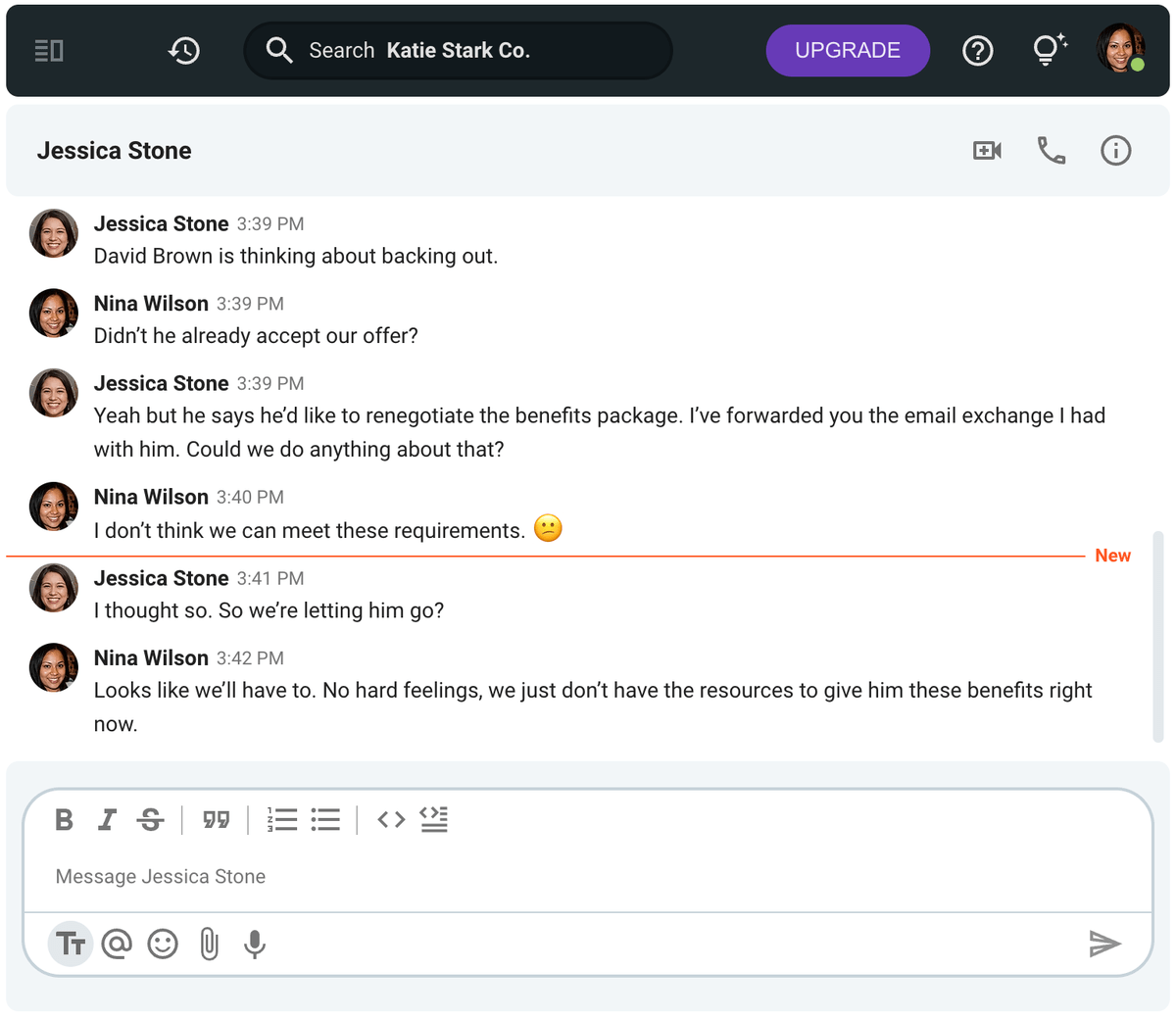
Reason #3: Receiving a better offer elsewhere
If you’re actively looking for a new job, chances are that you’re applying and interviewing at more than one company at the same time.
As a matter of course, some of your potential employers will have faster response times than others.
One company might take you through their whole selection process before the others get back to you.
When that happens, it can be tempting to say ‘Yes’ to the first offer you get, especially if you need to get hired quickly.
But, what if one of the other responses you’re waiting for is from your dream company?
Even if you make your predicament known to the company that’s offering you a position, doing so could prompt them to force your hand and make the decision prematurely.
But, if you end up having to accept a job offer only to receive a better one, retracting the first job acceptance would be a completely valid move.
Reason #4: Personal reasons
Lastly, we ought to mention that some people have various personal reasons to turn down a job after first accepting it.
In the time between the acceptance and the retraction, the job candidate might:
- Experience a family emergency,
- Go through a sudden health decline, or
- Move to a different city or state (if their partner gets a promotion that requires them to move, for example).
In any case, the would-be employer would likely understand that turning the job down was necessary and therefore not a slight on the company.
💡 Pumble Pro Tip
Nowadays, people are increasingly aware of their mental health, which is another personal reason that could conceivably prevent someone from going through with a job offer.
If you want to learn more about mental health in the workplace, with an emphasis on the issues remote workers might experience, check out this blog post:
How to politely and professionally retract a job acceptance
Like any other professional rejection, knowing how to decline a job offer you already accepted can be boiled down to a few crucial steps.
Namely, you’ll want to:
- Express gratitude for receiving the offer in the first place,
- Break the news about your rejection,
- Give a brief explanation of your decision, and
- Wish them luck.
Of course, if you’re rejecting a job offer after signing the offer letter, there may be a few more steps to the process.
Luckily, the following guide should help you navigate those tricky waters.
Step #1: If you’ve already signed a contract, read it over
Declining a job offer can be difficult enough even without the extra challenge of having to do it after first accepting it.
Adding legal paperwork into the mix certainly doesn’t make it easier.
So, if you’ve already signed an employment contract, now would be the time to read it over.
The typical notice period an employee would have to give to their employer is anywhere between two weeks and a month.
Then again, some companies have their new employees on a trial contract, which may specify an even shorter notice period of, say, five work days.
But, what if the papers you signed weren’t official employment documents at all?
What if you’re rejecting a job offer after signing the offer letter?
Would that be considered a legally binding document?
We’re happy to report that the answer to that question is a resounding ‘No.’
Signing an offer letter from a potential employer is only a formality before signing the contract.
Therefore, if that’s the extent of your involvement, you won’t even have to work through a notice period.
Step #2: Choose the right means of communication
After confirming that you won’t experience any legal repercussions as a result of your decision, it’s time to consider how you will share the news with your would-be employer.
As always, the answer depends on various factors, including:
- Your current relationship with the company in question (are you an average job candidate, an intern, or someone who was recommended by an employee),
- How you’ve corresponded with the company until that point (did you mostly do in-person meetings, voice or video calls, or emails and DMs), and
- The relationship you want to have with the company going forward.
If you want to be able to see or hear the way the hiring manager responds to your news, ask for a face-to-face meeting or a phone call.
Even in that case, though, you’ll still want to follow up with a written confirmation via email.
If you’re not that concerned with body language, or your communication so far has been on the formal side, opt for an email.
Alternatively, if you’ve previously interned for the company in question, you may have received guest access to their internal communication software.
In that case, you would naturally communicate through direct messages or the voice/video call option within the app.
💡 Pumble Pro Tip
Sharing work-related news over an instant messaging app can be difficult. After all, most of us see that method of communication as more casual than emails and face-to-face meetings.
Still, it’s important to remember that the messages we exchange with the people we work with require some forethought. If you’re looking to improve your business communication skill, this guide might help:
Step #3: Express gratitude
Once you’ve chosen a means of communication that feels appropriate, it’s time to start drafting your message.
After delivering a professional greeting, you’ll want to tell the company representative how grateful you were to even get the opportunity to work with them.
There are plenty of ways to express your gratitude professionally, but in this case, you might want to use one of the following examples:
“I appreciate your interest in me as a candidate. It’s been a long-time dream of mine to work for your company.”
“Thank you for offering me the position of [job title] at [company name]. I truly enjoyed speaking with you and the [team you were interviewing for] and getting to know what your company stands for.”
“I had an amazing time throughout the interview process and am grateful for the opportunity to work with you.”
Remember: there’s no need to overstate your emotions when drafting your message.
Be as honest as you’re comfortable with and stick with the facts wherever possible and the message should turn out just fine.
Step #4: Break the news
After thanking the company representative, you’ll want to get to the gist of your message as quickly as possible.
To do that, you can use one of the following examples:
“Unfortunately, I’m writing to rescind my job acceptance.”
“I’m afraid I’ll have to withdraw my job offer acceptance.”
“I’m so sorry, but it looks like I’ll have to back out of this job.”
Unless you already have an established relationship with your would-be employer, it’s best to keep the tone of the message formal.
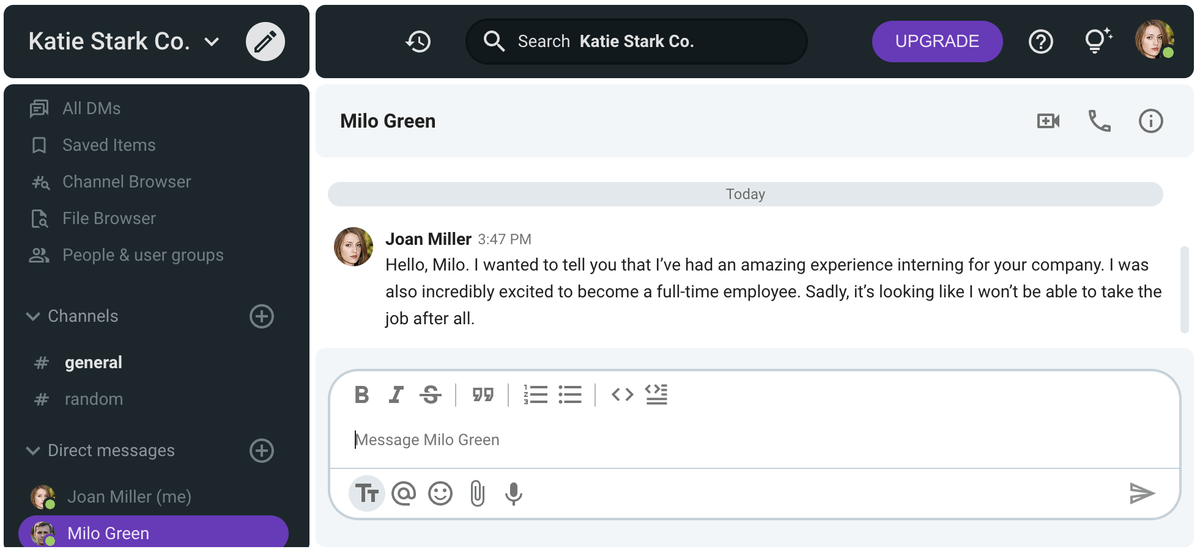
Step #5A: Give a brief but vague explanation
Even though explaining your decision isn’t strictly necessary, doing so could go a long way to preserve your professional reputation.
Additionally, providing a valid reason would also assure the company that you’re not reneging due to anything they’ve done — an illusion you may want to cling to even if the opposite is true.
In any case, your explanation should be professionally-worded but fairly vague.
Or, if you’d prefer to be more honest about the reason for the rejection, you can skip to the next section of this guide.
If you want to be vague about it, though, you could say:
“After much deliberation, I have reached the conclusion that I am not the right fit for your company.”
“Upon further consideration, I’ve realized that this position doesn’t align with my career goals.”
“My circumstances have changed, preventing me from being able to take this job.”
“Sadly, I have come to understand that this role isn’t in line with my overall goals. I wouldn’t want to waste your time training a candidate who doesn’t intend to stay in the industry for much longer.”
“I’ve realized that I’m not quite ready to move on from my current job. I hope you understand.”
“I’ve decided to stay in my current role — I apologize for the inconvenience.”
As you can see, even though these examples seek to pacify the recipient of your message, none of them will give them any real clue as to why you’ve decided to back out of the job.
Step #5B: Be honest (but tactful)
Now, if you pride yourself on being forthright with your business contacts, you may want to go into specifics.
Luckily, most of the reasons you might have to back out could be expressed in a professional manner.
For example, you might say:
“I’ve realized that I’d like to distance myself from working night shifts.”
“I am aware that this position would require me to move within the next year or two. Unfortunately, I just don’t see myself doing that any time soon.”
“I’m afraid I’m not in a position to accept the compensation we have agreed upon after all.”
“I’ve realized that some of the benefits I’ve mentioned during the negotiation process are issues I am unwilling to compromise on.”
“After a great deal of thought, I’ve decided to accept an offer from another company instead.”
“I’ve received another offer for a job that’s more aligned with my career goals.”
“After weighing my options, I’ve decided to pursue a career path that will provide more opportunities for advancement/travel/etc.”
“I am currently experiencing a family emergency that will prevent me from starting work in the next few weeks/months.”
“Since we last spoke, I have uncovered some concerning health issues that require my immediate attention. I simply won’t be able to work while I deal with this situation — I apologize.”
Depending on the reason you provide, the company representative might even get back to you in hopes of renegotiating.
Step #6: Apologize
In professional communication, there is a time and place for apologies.
Generally, you shouldn’t overuse them, as doing so can diminish your point.
Still, there are ways to express your remorse over the way your employment fell through professionally.
In this case, you may want to project an apologetic tone throughout your message.
However, you can also include the following sentences to communicate your feeling of regret:
“I’m sorry I have to back out at this stage of the selection process.”
“Please allow me to apologize for the inconvenience.”
“I humbly ask for your understanding and patience.”
Then again, if you have a close relationship with the company or its representative, you may be able to drop the formalities and express yourself in a more casual way.
“I’m so sorry everything played out this way. I was really looking forward to working with you.”
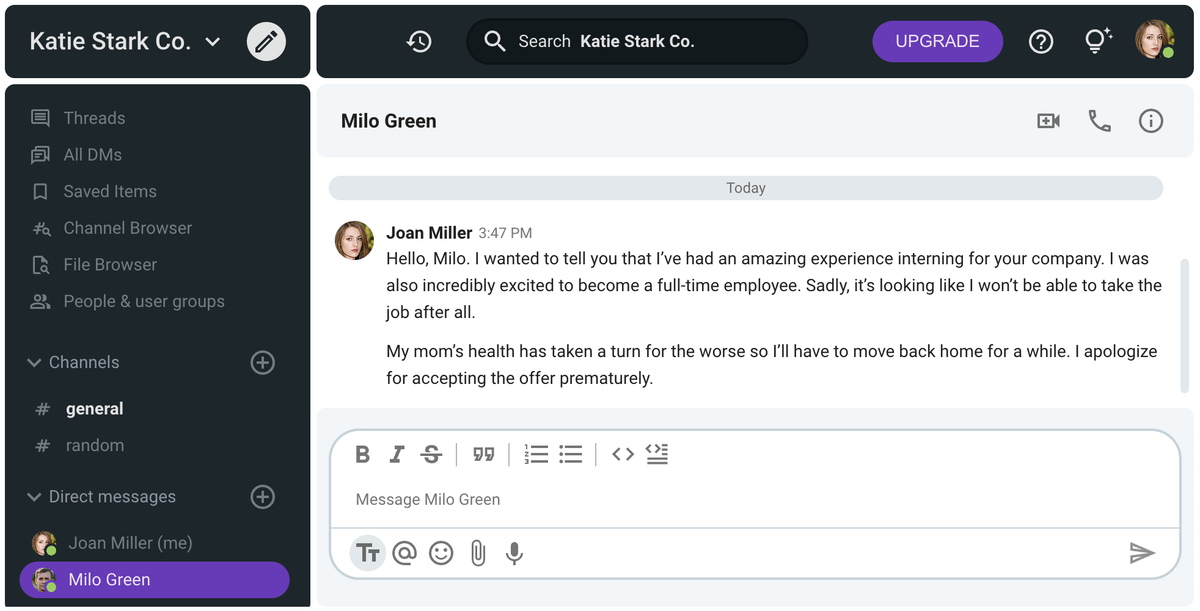
Step #7: Wish them luck
Now that the gist of your message has been communicated, it’s time to tie everything up in a tidy bow.
One way to do that would be to wish the company — and its representative — luck.
For example, you could simply say:
“I wish nothing but the best for you and your company.”
Alternatively, let’s say that you were offered the job after an extensive search for a good candidate.
If your rejection will leave the company in need of another employee, you might say:
“I hope you find the perfect candidate quickly.”
“Good luck with your search for a suitable candidate for the position.”
“I’m sure the perfect candidate will come along in no time.”
Step #8: Don’t burn those bridges — ask to stay in touch
Lastly, if there’s one thing you take away from this guide, let it be this.
There’s no need to slam the door behind you when you leave a business opportunity behind.
Unless the employer exhibited some truly atrocious behavior toward you during the selection process, maintaining a professional yet friendly demeanor will:
- Show that you are a reasonable and polite person,
- Preserve your professional reputation, and
- Make the hiring team remember you in a kind light.
All of this setup could come into play months or even years down the road.
After all, you never know where life will take you.
You may have to revisit the job offer you’re declining at a later date.
Alternatively, the hiring manager you’ve been talking to could end up working for another company you apply to.
Either way, asking to stay in touch with the hiring staff could benefit you later on.
To that end, you might say:
“I really enjoyed talking with you. Would it be alright to check in with you on occasion?”
“Even though we won’t be working together right now, I’d love to stay in touch with you. Could we connect on LinkedIn?”
“I regret not being able to join your company in Boston. Would you be open to meeting up sometime next year, though? I’d love to see if the position is still available after I work out the personal issues I’m going through.”
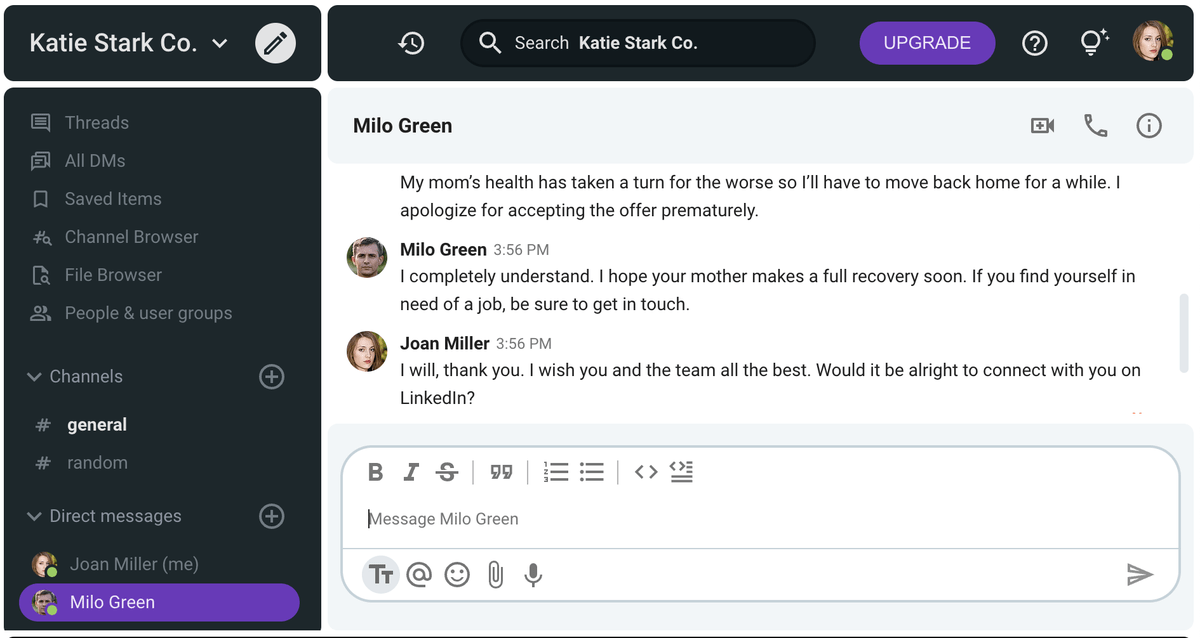
💡 Pumble Pro Tip
Asking a business contact for their phone number isn’t always appropriate. However, if you know how to ask, that might be another valuable employment resource for you later on. To learn more, check out this article:
How do you avoid having to decline a job offer after accepting it in the future?
As much as this guide was about learning how to turn down a job offer after accepting it, to begin with — we can all agree that having to do something like that is less than ideal.
After all, accepting a job offer is essentially making a promise that you’ll show up at work.
As someone who’s working on establishing their career, you really don’t want to make a habit of breaking promises.
Luckily, there are some simple questions you can ask yourself to avoid having to go back on your word.
Question #1: Do you need this job or do you want it?
Most people don’t make a habit of applying for a job if they don’t need one.
However, feeling the need to get a job could be what’s making you accept offers prematurely.
To avoid having to do so in the future, ask yourself whether the offer you’re being presented with is something you absolutely can’t pass up.
If you’re not excited about the job, ask yourself if you need it because you’re in a financial bind.
If your answer to both of these questions is ‘No’ — there’s no reason to rush the acceptance.
Of course, there’s nothing wrong with accepting a job you’re not interested in because you need the money.
However, being aware of that will allow you to keep a clear head when weighing your options.
Question #2: How much time do you have to consider it?
At this point, you’ve probably felt pressure to reply to any job offers as soon as they come in.
And of course, we’d never advise you to make potential employers wait for a response too long.
Even so, remember that you can always ask for additional time to think about your options.
“May I have a few days to think about your offer? I could get back to you by Friday.”
If the employer, or rather the hiring manager you’re speaking to, doesn’t seem open to entertaining these types of requests, you can even fib a little.
“I am currently unable to give this offer the attention it deserves as I am on vacation. Would it be possible to get back to you with my answer by next Monday?”
If the company is adamant about having the answer immediately, you may want to ask yourself why that is.
Question #3: What does your dream job look like?
The good news is that seeing what’s missing from the offers you decline will show you what you want from your “ideal” job in terms of:
- Working conditions,
- Compensation,
- Company culture, and
- The other factors we have mentioned throughout this guide.
Armed with that knowledge, you’ll be able to narrow down your job search even further.
Ultimately, knowing what you want will empower you to decline unsuitable offers confidently instead of accepting the first one that comes in and then having to go back on your word.
Pumble makes everything easy — Even declining a job offer you already accepted
Even though you now know how to back out of a job offer you already accepted, you should still try not to create situations that require you to use that particular skill.
But if you do find yourself in this particular pickle, then bite the bullet and make the call, send an email, or — if they’ve added you to their Pumble workspace via guest access — send a DM or schedule a call.
Always remember to be polite and honest — but not to the point of trampling on your own boundaries.


